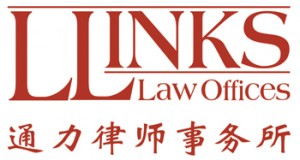in recent years, an increasing number of Chinese A-share listed companies have – with an eye to securing strategic resources, enhancing their technological reserves and opening new foreign markets – started to train their sights on the world in search of acquisition targets. In this process, as there are differences in domestic and foreign acquisition transaction practices, and A-share listed companies are required to comply with special listing regulatory requirements, they will usually face certain special legal issues common in such transactions. In this article, the author examines certain special points of concern in such transactions.

Partner
Llinks Law Offices
Time of effectiveness of transaction agreement affected by approval procedure
Whether an outbound acquisition carried out by an A-share listed company requires the approval of the board of directors is determined in accordance with the listed company’s articles of association. Generally, a listed company will specify in its articles of association the approval authority of the board of directors based on the disclosure standards (such as total assets, operating income, net profit, or other financial indicators of the target reaching a threshold ratio) required by the listing rules.
When a transaction constitutes a “material asset restructuring transaction” of an A-share listed company, the listed company may, out of consideration or concern of locking its offering price, management of insider information, and early lock-up of the transaction target, adopt the two board meetings method, namely, only reviewing the preliminary transaction plan (excluding the consideration for the subject matter, the number of shares to be offered, and other such information) at the first board meeting, and the final transaction plan, and the transaction documents, at a second board meeting.
If any financial indicator of the target (e.g., the total assets, operating income and net profit) reaches the threshold ratio specified in law, the approval of the transaction at a shareholders’ general meeting of the listed company is required. Furthermore, if the transaction arrangement involves such matters as connected transactions, security provided for third parties, etc., the requirement of approval by the shareholders’ general meeting is even more likely to be triggered.
Based on customary practices in foreign acquisition transactions, the transaction documents usually take effect immediately upon execution, whereas the shareholders’ general meeting approval, government approval, securities regulator review, etc. (if required) will become the conditions precedent to closing. If a cross-border acquisition transaction only triggers board approval, in most circumstances, the transaction agreement can take effect immediately on the date of board approval (or be executed and take effect only after board approval).
However, if a transaction requires the approval of the shareholders’ general meeting of the A-share listed company, then, based on the requirements of its disclosure system, the company will usually require that the transaction agreement takes effect only after approval by the shareholders’ general meeting so as to ensure that, in the event that the transaction documents fail to be approved by the shareholders’ general meeting (resulting in the failure of the transaction), the listed company will not incur liability for default under the documents.
As the time the agreement takes effect is closely connected to the parties’ post-execution obligations, the transaction timetable, and even the allocation of liability in the event that the transaction falls through (such as the breakup fee), usually the domestic and foreign parties need to carefully consider this issue.
Material asset restructuring
If any financial indicator (total assets, net assets, operating income, etc.) of the target in an outbound acquisition reaches 50% of the corresponding indicator of the A-share listed company, or an offering of shares by the A-share listed company to purchase assets is involved, the transaction constitutes a material asset restructuring. In such case, the listed company needs to pay attention to the impact that the following points could have on the transaction.
First, a material asset restructuring transaction requires the approval of the China Securities Regulatory Commission (CSRC). As required by regulatory documents of the CSRC, the transaction agreement must stipulate that it will take effect after the approval of the CSRC (the foreign party should harbour a reasonable expectation that, based on CSRC requirements, the A-share listed company has no room for compromise on this issue).
Second, if a listed company buys or sells the same or related assets within 12 months, the indicators of those assets need to be added up when calculating whether the material asset restructuring threshold is reached.
It should be noted that if there is a “same or related asset” transaction (laws are silent on the specific scope of this, requiring a case-by-case analysis), the proposed transaction could fall within the scope of a material asset restructuring. Accordingly, to avoid triggering the CSRC approval and other such procedures, the listed company may need to pre-plan the closing schedule or transaction structure.
Kenneth Kong is a partner at Llinks Law Offices

Llinks Law Offices
16F / 19F, ONE LUJIAZUI, 68 Yin Cheng Road Middle
Shanghai 200120, China
Tel: +86 21 3135 8666
Fax: +86 21 3135 8600
E-mail:kenneth.kong@llinkslaw.com
www.llinkslaw.com




















